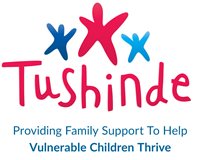 Assessing the impact of work with children and families
Assessing the impact of work with children and families
Tushinde Children's Trust is a Scottish charity providing family care and education for children in the Mathare and Kiambiu informal settlements in Nairobi, Kenya.
The request
Tushinde Children's Trust sought help with analysing data collected over time on children and families to assess the impact of their work with them in the slums of Nairobi. They sought to assess the impact their activities had on the lives of the children and families. This was in order to demonstrate to Donors that funds were being put to good use and to inform Tushinde’s own assessment of their activities. Specifically they requested an assessment of the data available, how best to use the data, difficulties/challenges of collecting data at present in Tushinde Children's Trust and specific recommendations to improve data collection techniques.
The approach
Imelda Musana was the statistician for this assignment. She worked closely with Megan Wright of Tushinde Children’s Trust who shared the data. Analysis was done using Microsoft Excel and STATA while computation of the Body Mass Index Measurements (BMIs) was according to Centres for Disease Control and Prevention thus weight of the individual in kilograms divided by the squared height in meters of the same individual and interpretation for persons aged less than 21 years age and sex specific. Calculated BMIs were expressed as percentiles based on graphical published body mass index for age percentiles of US children. It was assumed that BMI trends of children in Africa follow the same trends for children in the USA of the same sex and age and growth charts used specific for Boys and Girls.
The result
Overall, there was a lot of missing data and information showed focus on supervision in lower classes than the upper classes. No data was provided on assessment tools, income, disability, ethnicity, or referral type thus it was not possible to respond to all project requirements. For BMI, key data was missing on age, date of birth, sex for some children thus limiting computation and subsequent interpretation. Specific recommendations were made on data management, baseline studies, standardisation of variables, and role of care givers.
Several recommendations were made especially the need for a comprehensive database of all beneficiaries with unique identifiers, consistency in coding, standard naming of variables like Surname and Other names. Also, there is need for standard guidelines to the staff with emphasis on complete recording of data including the Mid-Upper Arm Circumference. The final report includes other areas of improvement like longitudinal and cross-sectional studies to determine the impact.
The impact and benefits
Megan Wright, executive director at Tushinde Children's Trust, wrote:
‘Imelda’s statistical report was thorough and professional. We are grateful for her effort in finding many useful data points despite poor data. When we were smaller, these discrepancies would have easily been addressed by asking the social workers. Now, we can’t follow up so easily, yet our capacity to record data hasn’t grown as we would have liked. Imelda’s report is the wake up call we all needed. Imelda gave practical suggestions for improvement when we met. We have discussed ways to improve baseline data on our intake form and the possibility of setting up a database. We are grateful to Imelda for her professional advice.’